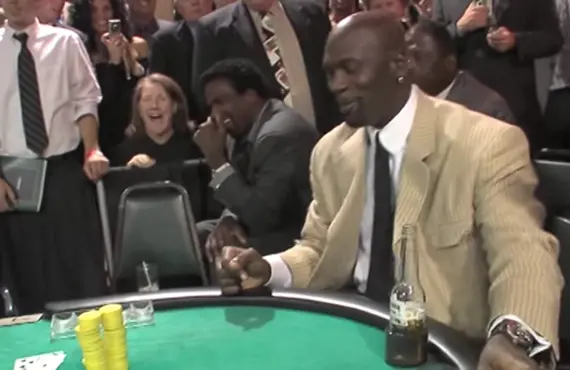Best Days of the Week to Bet Sports Based on Historical ROI
You’ve probably spent plenty of time thinking about what to bet on. But do you ever think about when you bet?
If you don’t, you should change that! As it turns out, timing plays a way bigger part in betting success than most of us realize. Just like line movement and public money, the day you make your bet can influence how much value you’re really getting. And historical data shows that there’s more to it than luck or superstition. There are real, measurable patterns in return on investment (ROI) depending on the day of the week.
Who would’ve thunk? That’s why we are going to look at what the best days to bet on every major sport are based on ROI trends that have been collected over several years. If you’re into the NFL, NBA, MLB, or college action, we’ll tell you how little changes in your timing can turn into smarter bets and better results!
Why the Day You Bet Matters
The majority of the population thinks that betting is only about choosing the right team. But that’s not all that matters: timing your bets right can be just as important as what (or who) you’re betting on.
Betting markets never stay static. Lines open, adjust, and react to the money that’s coming in. Early on in the week, odds are shaped by sharp bettors, and those who bet with good info, not on emotion. Later on in the week, the public money begins to roll in, and that’s driven by mainstream opinion, highlight reels, and the ESPN ticker.
That combo creates opportunities, but only if you know when to get in, like the following examples:
- Early-week NFL bettors usually get much better lines before the market changes.
- Late NBA bettors could be reacting to player rest or injury news that wasn’t available earlier.
- Midweek MLB games usually have way less betting volume, and that can cause softer numbers.
Sharps know this, so they track when the market is softest, when the public pushes lines too far, and when the books make subtle adjustments. If you’re betting without paying attention to the day, you could be leaving a ton of value in the wind.
How ROI Was Measured
If we’re going to talk seriously about which days of the week have better betting value, we need to start with how that value was tracked. It’s one thing to say Sunday mornings are great for NFL betting, but unless that’s backed up by real numbers? It’s only speculation.
For our analysis, the ROI was calculated using the standard method:
ROI = (Total Profit ÷ Total Amount Wagered) × 100
If you bet $100 and made $105 back, that’s a +5% ROI. If you bet $100 and got $90 back, that’s a -10% ROI. It’s the cleanest way to measure performance across different sports, bet types, and days of the week, especially when using flat bets, which were applied across the board to keep the results consistent.
What Types of Bets Were Included?
The data we used focused on straight wagers: moneylines, spreads, and totals. Parlays and teasers were excluded since those bets carry different risk profiles and can distort long-term ROI, even when a few big wins come through. Our goal here was to track consistent betting behavior across time, not chase anomalies.
The bets were also recorded pre-game only. There were no live bets, in-game adjustments, or cash-out features factored in. This made it easier to measure how timing before the event impacted the closing lines and final results.

Where Did the Data Come From?
To guarantee that it was neutral and reliable, the numbers were pulled from the following:
- Publicly available bet history databases
- Historical line movement archives from major sportsbooks (BetMGM and FanDuel)
- Community tracking platforms like Action Network and BetStamp
We filtered out all user-generated win/loss records and concentrated on the systems and tracking logs that were consistent, timestamped, and verifiable across multiple sources.
How Far Back Does the Data Go?
Almost all of the data we reviewed spans the last 5 to 10 years, depending on the sport. NFL and MLB had longer-range data and went back as far as 2012 in some cases, and newer tracking for NBA and college sports covered closer to 6 or 7 seasons. That range gave us enough of a sample to see weekly ROI patterns that weren’t based on any flukes or one-season swings.
The result meant we got a solid view of which betting days returned better value via different leagues and betting markets.
Best Days to Bet NFL
If there’s one sport where timing makes a massive difference, it’s the NFL. The league’s weekly schedule, heavy media coverage, and huge influx of public money make it one of the most volatile betting markets, especially as it gets closer to game day.
Historically, Tuesday and early Wednesday have shown strong ROI over several tracking databases. Those early lines, which were released shortly after the previous week wraps, are usually softer because sportsbooks haven’t fully adjusted for injury reports, matchup mismatches, or public narrative. Sharps love this window. They grab numbers before they move. And once they do? The rest of the week becomes a game of catch-up for everyone else.
By Friday afternoon, the books have adjusted for midweek bets, player statuses, and betting volume. And by Sunday morning, especially after the early inactives are posted, another shift hits, and those are the late bettors that come in hard, and public money floods the most popular matchups.
If you’re backing the better team, earlier in the week is usually better. Lines tend to tighten as game day gets closer, meaning value on favorites will get eaten up by the time everyone’s betting on Sunday morning. Getting a favorite at -2.5 on Tuesday could turn into -3.5 or worse by kickoff.
Interestingly, underdogs, especially the unpopular ones, usually offer better value later on in the week. As public money comes in on the big-name teams, sportsbooks will sometimes shade lines toward those favorites, which inflates the underdog numbers. That means if you like a dog, it might be worth waiting until Saturday night or Sunday morning. But be careful that you’re not betting on a number that’s moved for a good reason (like a main player’s injury news).
Quick Tip for NFL ROI:
– Tuesday/Wednesday: Strong ROI for sharp bettors grabbing early line value.
– Sunday morning: Sometimes useful for last-minute injury clarity, especially if you’re betting totals or player props, but usually worse for favorites.
– If you’re betting the favorite, earlier is better. If you’re betting the dog, waiting can sometimes give you a better number, but not always a better result.
Best Days to Bet NBA
The NBA is a completely different animal from the NFL. You’re dealing with a nightly schedule, player rest days, travel fatigue, and last-minute injury news that can completely shift the market within minutes. That makes timing delicate, but it also creates pockets of value during the week.
Over multiple seasons of tracked data, Tuesdays and Thursdays favor stronger ROI for straight bets, especially against the spread. Why? There are less games. On those lighter slates, the sportsbooks have more time to fine-tune their lines, but so do bettors. With fewer matchups to research, sharps can zero in on any mispriced games and take advantage before the public floods in closer to tipoff.
Plus, books can’t always hide the weak lines behind volume. If there are only 2 or 3 games on a Tuesday night, a number that’s even slightly off will draw attention from sharp bettors and quickly get corrected. That brief window, which is usually in the morning or early afternoon, is where you’ll find the best value.
One of the biggest edges in NBA betting is monitoring the injury reports. If you’re fast and connected, midweek games give you more time to react to rest day confirmations, load management reports, or unexpected lineup changes. The late scratches usually occur closer to tipoff, so if you’re betting early in the day, especially on a Tuesday or Thursday, you can sometimes get ahead of the move.
Those who wait for injury news and jump in right before tipoff can still find value if the public pushes the line too far. That’s where fading the move makes the most sense, mainly when the number overreacts to one player sitting.
Weekend NBA games, for the most part Friday and Saturday, draw heavier public money. Casual bettors are way more active, betting on bigger matchups on national TV or star-driven games. That creates more volatility and sharper lines. In most cases, the ROI on weekend NBA betting will dip compared to midweek plays.
Quick Tip for NBA ROI:
– Tuesdays/Thursdays: Smaller slates = more focused research and better ROI.
– Early betting works when you trust your injury reads. Late betting works when the public overcorrects.
– Weekends usually favor the sportsbooks, not the bettors.
Best Days to Bet MLB
There are 162 games per team and action nearly every day of the week, which means that baseball gives bettors more opportunities than any other major sport. But more games don’t always mean more edges. Nope! That high volume makes it even more important to know which days of the week will actually deliver value, because not all game days are the same.
Over several seasons of tracked ROI data, Wednesdays and Thursdays have produced better returns for straight bets compared to the rest of the week. That seems random at first glance, but there are a few solid reasons behind it.
Midweek games can (and do) fly under the radar. You’re not getting the big-name pitching duels or Sunday night ESPN matchups. Casual bettors are less active, and sportsbooks don’t always put the same energy into sharpening every single number. And that creates an opening.
Smaller-market teams playing in getaway-day afternoon games? That’s the kind of situation where fewer eyes = softer lines. Chiefly, when the betting volume is low, the midweek matchups become a prime hunting ground for the bettors who do their homework.
Most MLB teams roll through a 5-man rotation, and once you follow it closely, you’ll notice patterns that are tied to performance, rest, and bullpen fatigue. Midweek games usually feature back-end starters or long relievers. That means more variables and more chances for the line to miss.
Sharp bettors who track pitching matchups, particularly the ones with lesser-known arms, are able to spot mispriced totals and underdog value on Wednesdays and Thursdays, before the market adjusts.
You’ll also see odd travel spots pop up midweek, mostly on Thursday. Teams that are finishing a series in one city, then flying across the country for a weekend set, will rest their starters or pull pitchers early. If you’re paying attention, these are the moments when the oddsmakers might miss motivation or rotation news, and you can get in before they adjust.
By the time Friday and Saturday arrive, the books are ready. Lines are sharper, public money is flowing, and the more casual bettors are back in the mix. Volume is higher, and even though there are more games to choose from, the edge begins to shrink.
Quick Tip for MLB ROI:
– Wednesday and Thursday games show stronger ROI historically, predominantly for underdogs and totals.
– Fewer eyes = more opportunity for sharp bettors who are following rotations and can spot fatigue angles.
– The earlier that you can catch a bad line, especially on midweek afternoons, the better.
Best Days to Bet NCAAF / NCAAB
Weekends get all the love and hype in college sports, but midweek games might actually be where the real value lives. If you’re betting on football or basketball, the day of the week is a main factor in how sharp (or soft) the market is, and ROI trends make that pretty obvious.
Saturday is college football’s main stage. Every sportsbook is flooded with action, the lines have been bet into all week, and public money is all over the place. While that makes for a fun sweat, it also means that the lines are about as efficient as they’ll ever be by the time you get to Saturday morning.
But earlier in the week? That’s where things can get really interesting.
Tuesday and Wednesday night MACtion games, you know, the ones that feel like no one is watching on ESPN2, have shown surprisingly strong ROI for sharp bettors. Why? There are fewer viewers, less public betting, and usually softer opening lines. Books know the action will be limited, so they don’t always put the same attention into pricing them. That leaves a lot more room for bettors who’ve done their research.
The same goes for Thursday and Friday night games, primarily in smaller conferences. If you’ve followed injury reports and coaching trends, you’re usually ahead of the crowd, and sometimes ahead of the sportsbooks.
In college basketball, weekday games have some similar benefits. Saturdays are packed with marquee matchups and casual betting volume. That means that the lines get hammered into shape by game time, and anything that opened soft is long gone.
But Tuesday through Thursday games, mainly in smaller conferences, will deliver stronger ROI. When there are only a few games on the board, sharp bettors are able to zero in on any mismatches or totals that have been mispriced. Meanwhile, the public is mostly waiting until Saturday.
The other benefit? College basketball games during the week aren’t on anyone’s radar. That means the public perception isn’t pushing lines in the same way, and sharp action can move the number with way less resistance.
College football and basketball both see a flood of public money hit the market late in the week, chiefly on Friday night into Saturday morning. The surge of action can create artificially inflated lines on popular teams, and that sets up opportunities to fade favorites or grab underdogs with extra value.
If you’re betting with the public on Saturdays, you’re betting into their number. If you’re getting in earlier, or on a Wednesday night, you’re usually getting ahead of it.
Quick Tip for College ROI:
– Tuesday–Thursday NCAAF (MAC, Sun Belt, smaller conferences) shows hidden value due to the lower volume and softer lines.
– Weekday NCAAB games, particularly in mid-majors, offer better returns than those stacked Saturday slates.
– Stay away from crowded betting windows unless you’ve locked in your number early.
Average ROI by Day and Sport
We’ve broken down the trends by sport, but if you want a quick snapshot of how average ROI lines up over the week, look at the table below!
| Sport | Day of the Week | Average ROI | Notes / Trends |
|---|---|---|---|
NFL | Tuesday | +4.1% | Best day to catch early value before the market adjusts |
NFL | Sunday AM | -1.3% | Public money has already shifted lines, and favorites are overpriced |
NBA | Tuesday/Thursday | +3.2% | Smaller slates, sharper bets, less noise |
NBA | Friday/Saturday | -2.4% | Heavy public betting, sharper lines |
MLB | Wednesday/Thursday | +2.8% | Lower-profile games, weaker lines, underdog value |
MLB | Saturday | -1.1% | Lines sharpened by volume, especially in marquee matchups |
NCAAF | Tuesday/Wednesday | +3.6% | Smaller conference value (MACtion, Sun Belt, etc.) |
NCAAF | Saturday | -0.9% | Lines hammered by public and media influence |
NCAAB | Tuesday-Thursday | +2.7% | Mid-major value before Saturday’s big slate |
NCAAB | Saturday | -1.5% | Line efficiency increases with volume |
FYI: All of the ROI values are based on a flat $100 betting model using historical data over 5–10 years. Variance exists season to season, but long-term trends hold steady over multiple data sources.
Other Factors That Impact ROI
We’ve told you what day of the week gives you better ROI, but that’s only half of the story. A few other elements can make or break your returns, even if you’re betting on the “right” day. The following is what else you should be paying attention to!
Time of Day vs. Day of Week
The time you place a bet matters just as much as the calendar day. For example:
- In the NFL, betting Tuesday morning vs. Friday afternoon can mean a difference of a full point or more on the spread.
- In the NBA, early-day lines might not account for player rest or any late scratches. Waiting until closer to tipoff, mainly for midweek games, can actually help if you’re tracking lineup news.
- In college sports, early-week underdog value usually dries up by Thursday. Get in too late, and you’re betting a worse number with the same risk.

So even on a good ROI day, a bad time can erase your edge.
Line Shopping = Built-in ROI Boost
If you’re not comparing odds across different betting sites, you’re losing money, plain and simple.
If you’re betting on an underdog at +120, somewhere else, the same team could be listed at +130. Those extra ten cents can turn a break-even season into a profitable one.
Game Volume and Market Noise
Big slates (like NFL Sundays or Saturday college basketball) create a different kind of pressure. More games = more volume = more casual bets flooding the market. That can either work for you or work against you.
- Heavy volume means more stable lines, but also more competition for sharp edges.
- On lighter slates (think Tuesday MAC football or a four-game NBA night), the lines may be softer, but they also move faster and are more vulnerable to sharp action.
Fewer games mean there is more room to see mistakes, but you have to move early and be ready for when the market shifts!
Key Takeaways for Smarter Betting
We’ve covered a lot, but what all that data and timing boils down to is the following tidbits that can start using:
- NFL bettors: Your best shot at value is earlier in the week, like on Tuesday or Wednesday. That’s before the public piles in and the lines get hammered into shape.
- The NBA sharp money tends to hit on Tuesdays and Thursdays—lighter slates = more focused bets and more vulnerable lines.
- Midweek MLB games (especially Wednesdays and getaway-day Thursdays) give up more value than you’d expect. Underdogs and totals will pop here due to travel fatigue and low volume.
- College football and college hoops deliver some of their best value on the weeknights, not on the popular Saturday showdowns. Think MACtion, small-conference matchups, and totals that move late.
- Don’t overbet on crowded slates like Saturday mornings or Sunday afternoons unless you’ve locked in your line early.
- Line shopping adds instant ROI, even on low-percentage bets. Don’t leave money on the table by settling for the very first number that you see.
- Track your own betting! Every bettor is different. If Tuesdays work for the market but not for you, your data will tell you what’s happening.
Final Thoughts: Timing Your Bets for Maximum ROI
Betting timing matters a lot more than most people realize. A solid read on a game won’t get you very far if you’re betting it at the worst possible number. If you’re locking in NFL lines before the market changes or seeing midweek value in college hoops, timing can turn a good idea into a profitable one, or it can take away that edge before the game even begins.
Here’s a quick recap of why you should time your bets for the max ROI:
- The NFL lines usually offer the best value early in the week.
- The NBA and college sports tend to favor midweek bettors who are ahead of injury news and public movement.
- The MLB rewards those who pay attention to midweek matchups with less action and lots more opportunity.
Even a few measly percentage points of ROI here and there can make a big difference across a full season. The more consistent your habits are? The easier it is to build an advantage that lasts.
Tracking your own ROI day of the week is more than helpful! It can show you patterns that you’d never see, and you can use that info to refine your timing, cut out any wasted bets, and increase your returns.
Want to put your timing into practice? You can! Check out our Sports Betting Picks and Strategy Guides to get started!
Knicks vs. Pistons Game 4 Odds & Predictions: Can New York Seize Control?
Game 4 hits the floor Sunday afternoon, and the pressure is mounting! New York got an important win on the road to get back control of the series, but Detroit is not gonna back down without a fight. It’s all happening at the Little Caesars Arena (yes, the little “pizza pizza” dude has a whole arena named after him).
- When: Sunday, April 27, at 1:00 pm ET
- Where: Little Caesars Arena, Detroit, MI
- Broadcast: ABC
Series Snapshot: Knicks Lead 2-1
The Knicks got punched right in the face in Game 2, but they came back swinging in Game 3. Here’s where the series stands right now:
- Game 1: Knicks 123, Pistons 112
- Game 2: Pistons 100, Knicks 94
- Game 3: Knicks 118, Pistons 116
New York’s win in Detroit wasn’t an easy one. It took big plays from Karl-Anthony Towns and Jalen Brunson, and some main stops when it mattered. Now? The Knicks are two wins away from advancing, and they’ll either put the Pistons on the ropes or let their lead slip.
Key Storylines
There is some stuff that’s bubbling beneath the surface going into Game 4, but the following are what sports analysts and fans are talking about!
1. Towns & Brunson: Leading the Charge
Karl-Anthony Towns snapped back into form when the Knicks needed it the most—he dropped 31 points and stretched Detroit’s defense all night. Brunson kept steering the offense under pressure, posting another 30-point night and wrapping it up late.
If these two players continue to set the tone, it’s going to be super hard for Detroit to keep up, let alone pull out a win.
2. Pistons Getting Physical
Detroit isn’t trying to finesse its way through this series. They’re hammering the boards, playing through contact, and daring New York to match their physicality.
Tobias Harris calling New York “soft” after Game 2 caused quite a stir, and you can see it in the way Detroit is attacking the glass and absolutely bodying cutters. Jalen Duren sticking on Josh Hart has jammed up the Knicks’ spacing, which has forced Thibodeau into making real decisions on rotations.
3. Injury Report
As of now, the Pistons are missing a few important bodies—the Knicks are not. Here’s who is out for Game 4:
| Team | Details |
|---|---|
Pistons | Isaiah Stewart (knee) and Jaden Ivey (fibula) remain out, which puts more of a load on Cade Cunningham and the starters, as it deletes Detroit’s rotation. |
Knicks | No injuries have been reported. They’re heading into Game 4 healthy and fully armed. |
Current Betting Odds, Line Movement & Insights
Here are the odds for the game via BetMGM:
| Team | Spread | Moneyline | Total |
|---|---|---|---|
Knicks | +1.5 (-105) | +110 | Over 217.5 (-105) |
Pistons | -1.5 (-115) | -135 | Under 217.5 (-115) |
Oddsmakers are giving the Pistons the nod at home, but the gap looks and feels razor-thin based on how the last two games shook out—it’s smaller than the line suggests.
Friday’s Betting Odds
- Spread: Pistons -1.5
- Over/Under: 216.5
- Moneyline: Pistons -125; Knicks +105
Betting Trends
Based on the way both teams have been scoring, there’s a strong case to be made for the over if Game 4 stays as open as the first three!
- New York and Detroit are combining for over 230 points per game in this series, which is higher than the current total.
- Detroit covered 59 games against the spread during the regular season, which is a top-5 rate league-wide.
This series hasn’t produced many defensive showdowns thus far, and unless one side suddenly clamps down? The scoring should stay pretty active.
Prop Bets to Watch
If you’re looking for a little side action instead of the usual bets, the following are a few player props that are worth circling!
- Karl-Anthony Towns (Knicks)- Over 32.5 Points + Rebounds: Towns has carved up Detroit’s interior defense when he’s given the space to do it. His ability to stretch the floor and crash the boards makes this total absolutely reachable.
- Cade Cunningham (Pistons) – Over 43.5 Points + Rebounds + Assists: Cade has worn a lot of hats for Detroit: scorer, distributor, and late-clock creator. Expect another heavy-usage game, especially if New York clamps down on Detroit’s secondary shooters.
- Jalen Brunson (Knicks) – Over 2.5 Three-Pointers Made: Brunson’s excellent efficiency behind the arc has been rock solid, and if Detroit’s defense continues to sag into the paint, he should get some super clean perimeter looks.
Our Best Bets
Here’s where we’re leaning heading into Game 4 based on the matchups and how the first three games have played out:
1. Jalen Brunson Over 29.5 Points
Detroit’s scrambling defense hasn’t had a consistent answer for Brunson’s in-between game. His ability to make space even in tight areas keeps showing up, and New York will keep putting the ball in his hands late.
2. OG Anunoby Over 16.5 Points
Anunoby is doing exactly what playoff wings need to do, and it’s been a major problem for Detroit’s wings. He’s knocking down threes, attacking mismatches, and finding gaps when the Pistons double Brunson or Towns. He’s hit this number in 7 of his last 8 games.
3. Over 216.5 Total Points
The first three games have been fast, physical, and really heavy on shot attempts, and defense has been optional at stretches in this series. Given the way both teams have found offense, particularly late in games, the over still feels like the right side until proven otherwise.
Place a bet at one of the top sports betting sites!
Matchup X-Factors
The game’s outcome won’t hinge solely on the star players’ performances. Who could be the difference-makers? Look below to see what we think!

Knicks’ Lineup Moves: Tom Thibodeau could go smaller earlier to counter Detroit’s muscle inside. Shifting Josh Hart and OG Anunoby around defensively could open up better transition chances.

Pistons’ Outside Shooting: Detroit needs timely shooting from Alec Burks, Harris, or Killian Hayes. If the Pistons can’t stretch the Knicks’ defense, the paint will stay crowded and possessions will disappear fast.
Final Thoughts & Prediction
Projected Score: Knicks 112, Pistons 108
New York put Detroit in a spot where Game 4 feels like it’s a must-win. Lose again at home? The Pistons would need to win three straight, and two of them would be at Madison Square Garden.
A Knicks win puts them one step from closing out at home, and a Pistons win throws this thing into a full sprint toward a six- or seven-game grind.
New York’s composure late in Game 3 and Detroit’s missing depth give the Knicks a small but real advantage on Sunday. If Brunson keeps winning his matchups and Towns stays aggressive, New York should find a way to win another one.
Cleveland Cavaliers vs. Miami Heat – Game 3 Betting Preview (April 26, 2025)
The Cavs are clicking at the right time, and they’re making life really tough for the shorthanded Heat squad. Up 2-0 in the series, Cleveland will be in Miami, and so far, they have a stranglehold on the series. The Heat will need to dig deep at the Kaseya Center if they want to fight another game.
- Series Status: Cavaliers lead 2-0
- Date & Time: Saturday, April 26, 2025, at 1:00 pm ET
- Venue: Kaseya Center, Miami, FL
- Broadcast: TNT
Game 2 Recap
Game 2 was evidence of why the Cavaliers finished near the top of the East and why Miami is hanging on by a thread.
- Final Score: Cavaliers 121, Heat 112
- Key Performers
- Cavaliers: Donovan Mitchell dropped 30 points, taking over in the second half and basically ending it.
- Heat: Tyler Herro poured in 33, doing everything he could to keep Miami within striking distance.
- Turning Point: Cleveland had a monster second quarter—they outscored Miami 43-28 and knocked down 11 threes, which sealed the game. Even though the Heat made a late push, the Cavs’ healthy lead was too much to overcome.
Team Analysis
The Cavs are built differently; their size, defense, and shot creation are in another league compared to the thinner, injury-hit roster that the Heat are dealing with.
Cleveland Cavaliers

- Regular Season Record: 64-18
- Road Record: 30-11
- Playoff Performance: Averaging 121.5 PPG through the first two games, moving the ball cleanly, and shooting north of 48%.
Key Players
- Donovan Mitchell: Playing like he’s the best guard in the series (he might be), averaging 30 points a night with outstanding shot-making off the dribble.
- Jarrett Allen: Allen controlled the paint, eliminated drives, and cleaned the glass. His rim protection has been insanely good.
Miami Heat

- Regular Season Record: 37-45
- Home Record: 19-22
- Playoff Performance: Giving up over 120 PPG so far and really struggling to put together stops when they matter the most.
Key Players
- Tyler Herro: Herro has been Miami’s lifeline offensively, getting buckets at all three levels, but he’s pretty much alone out there—he’s been working without a lot of help.
- Bam Adebayo: Bam has to find another gear inside! He’s rebounding well but has been way too passive as a scorer.
Injury Report
Injuries have been hanging over Miami like a dark cloud, and they just don’t have the depth to spackle over it.
Miami Heat
Here’s who is on the Miami injured list as of now:
- Isaiah Stevens: Out for the season
- Dru Smith: Out for the season (Achilles)
- Terry Rozier: Questionable because of his ankle (if he plays, this would help Miami with shot creation)
- Kevin Love: Questionable for personal reasons (if Love suits up, he’d be a boon for Miami in terms of vet grit and floor spacing)
Cleveland Cavaliers
The Cavs have no major injuries on their report, which means that they’re at full strength, and that’s just one more in the advantage column for the team.
Current Betting Odds, Line Movement & Predictions
The Cavs handled their business at home, and oddsmakers expect them to keep that same energy in Miami. Above, you can see the odds on ESPN BET for Game 3.
| Team | Spread | Moneyline | Total |
|---|---|---|---|
Cavaliers | -6.5 (EVEN) | -230 | Over 213.5 (-107) |
Heat | +6.5 (-105) | +195 | Under 213.5 (-107) |
Yesterday Betting Odds
- Point Spread: Cavaliers -6.5
- Over/Under: 213.5 points
- Moneyline: Cavaliers -238; Heat +195
Predicted Score: Cavaliers 118, Heat 110
Miami’s offense gets super thin once you get past Herro and Adebayo. If Rozier or Love doesn’t make a surprise return, it’s hard to see them keeping up for four quarters again.
Best Bets
And here is where we think smart money is heading into Saturday’s game:
- Over 213.5 Total Points: Both teams have proven that they can get buckets, but Miami’s defense hasn’t been able to get important stops, and Cleveland is scoring from all three levels.
- Cavaliers -6.5: Cleveland’s two-way dominance has traveled well all season long, and Miami doesn’t have the horsepower to trade punches for 48 minutes straight. Laying the points feels like the right call.
Key Matchups to Watch
All playoff games have a handful of matchups to watch, so here is who will be pivotal on Saturday afternoon!
- Donovan Mitchell vs. Tyler Herro: Mitchell’s physicality and shot versatility give him an advantage, but Herro’s quick release can punish any sort of lapse in perimeter coverage.
- Jarrett Allen vs. Bam Adebayo: Allen’s rim protection has been a huge problem for Miami’s halfcourt sets. If Bam doesn’t play with more force and get Allen into foul trouble, the Heat offense will stay stuck.
- Cavaliers’ Perimeter Defense vs. Heat’s Three-Point Shooting: Miami needs to hit outside shots early to stretch out Cleveland’s defense. If the Cavs can close out hard and run shooters off the line, it’s going to be a long afternoon.
X-Factors
There are a few x-factors that could tip Game 3 either way!
- Cavaliers: The role players. Garland, Mobley, and Strus have all had their moments. If they stay aggressive and knock down open looks, Miami’s defense will continue to be stretched.
- Heat: Home-court juice. Miami needs a strong start to rattle Cleveland early on, and any kind of boost from Rozier (if he plays) would be a massive gift.
Final Thoughts
The Cavaliers are playing stellar bball, and they’re two quarters away from putting Miami in a near-impossible spot. The Heat are running out of answers and possibly players.
If Cleveland can weather the early run and keep imposing their physical style, it’s really hard to see Miami climbing their way back into this series. Game 3 isn’t technically a must-win for the Heat, but in every way that matters, it absolutely is.
High-Stakes Addictions: How Celebrities Lost Fortunes Gambling
Being a famous millionaire sounds like a dream, doesn’t it? You have a ton of money in the bank, people adore you, and you’re living on easy street.
And for some celebs, that’s true! But for some stars, all of that excess didn’t mean that they were exempt from the problems that befall us ordinary people, like gambling addiction. All that is meant is that they had way more money to play with—and lose.
There are some super high-profile celebs who have spiraled into serious gambling problems in Vegas and invite-only high-stakes poker rooms. They’ve lost fortunes, sometimes their once-stellar reputations, and relationships.
We aren’t naming, and we are certainly not shaming them without a reason. Gambling addiction doesn’t discriminate, even if you have all the money in the world. We want to look at how fame, wealth, and impulsive decision-making collide in ways that spiral out in record time.
The names on our list range from A-listers and NBA icons to actors who made headlines for all of the wrong reasons. Some emptied their bank accounts, others got caught up in lawsuits, and some deny there was ever a problem to this day.
Gambling addiction can happen to anyone, even those who live in gated mansion communities and have an Oscar on their mantle.
Why Celebrities Are Drawn to Gambling
Big money, bigger egos, and snap-your-fingers access to the world’s most exclusive tables? It’s not rocket science or a mystery why some celebrities fall into a gambling trap.
Most of them live in high-adrenaline worlds to begin with. Add fame-induced dopamine rushes to the equation, and gambling just turns into another way to chase that very same high. Private jets, secret poker rooms, and VIP hosts make it even easier to lose track of just how far things are going.
Psychiatrists who specialize in addiction say that gambling lights up the same reward pathways in the brain as drugs or extreme sports.
Dr. Timothy Fong, co-director of UCLA’s Gambling Studies Program, told The Guardian, “Gambling becomes an escape, a distraction, or a thrill that mirrors the lifestyle they’re used to.” And that line between recreation and compulsion? It ceases to exist.
That’s the basic backstory of how it happens. And now for some real-life celeb cautionary tales. All of them illustrate how messy and destructive gambling can be, and it doesn’t matter how many awards or endorsement deals a person has.
Celebrity Gambling Disasters: 7 Shocking Stories
The following are seven very real and pretty shocking tales of celebs who went too far with gambling. Some of them are still millionaires and escaped relatively unscathed, and others weren’t so lucky.
1. Ben Affleck – Blackjack Obsession

Ben Affleck has been really open about a lot in his life, including his battles with alcohol, his rough patches in romantic relationships, and his blackjack habit. In 2014, he was booted and banned from the Hard Rock Casino in Las Vegas for counting cards. It’s not technically illegal, but it’ll get you persona non grata fast. His BFF Matt Damon made a movie about it called Rounders–was that a coincidence? Hmm…
“I took some time to learn the game and became a decent blackjack player. And once I got good, the casinos asked me not to play anymore.”
—Ben Affleck.
Affleck later confirmed it himself, saying that he studied the game, practiced strategy, and became “too good” for the casino’s liking. His skills weren’t random by any means, and he reportedly took blackjack seriously and considered it a mental challenge. But even a skill-based approach doesn’t mean it was a healthy habit.
Besides his blackjack drama, Affleck’s larger struggles with addiction point to the way gambling can overlap with other compulsions. He’s been in and out of rehab over the years, suggesting that his relationship with gambling was probably only one part of a cycle of behavior that he’s tried to manage.
- Estimated losses: Unknown, but the ban itself suggests there was heavy spending and high-stakes play.
- What Went Wrong: Affleck’s need for control and to master the game eventually turned into an obsession.
2. Charles Barkley – $10M Lost at Casinos
Iconic basketball player Charles Barkley has never been shy, and that extends to his gambling history. The former NBA MVP and current broadcaster admitted to blowing through more than $10 million in casinos. He told ESPN point-blank: “Do I have a gambling problem? Yeah. But I can afford to gamble.”
That quote aged pretty poorly. At one point, he was sued by a Vegas casino for not paying back $400,000 in gambling markers. Barkley said he didn’t gamble for the money; it was the competition and the excitement that kept him coming back. But the financial hole he dug for himself was pretty deep.
“I’ve lost a million dollars at a time on three or four occasions.”
—Charles Barkley.
He says that he eventually slowed down, especially after he was hit with legal trouble and hard conversations with friends. But his openness and willingness to talk about it give us an inside look at how gambling addiction operates in people who have seemingly unlimited funds.
- Estimated losses: Over $10 million.
- What Went Wrong: Barkley’s competitive streak didn’t stop when he left the basketball court. It followed him into the casinos, but the stakes were different.
3. Tobey Maguire – Poker Scandal
The OG Spiderman didn’t just love poker—he was really good at it. Maybe a little too good for a game that was operating outside the law.
Tobey Maguire got caught up in an underground poker ring that was run by Molly Bloom (it was turned into a movie written by Aaron Sorkin called Molly’s Game) in the early 2010s, which was oozing with scandal. The games included lots of A-listers, hedge fund managers, and one major Ponzi schemer—Bradley Ruderman—whose stolen investor money ended up in the pot.
“The underground poker ring was invitation-only—and dripping in cash, crime, and celebrities.”
—Tobey Maguire.
Maguire reportedly made hundreds of thousands from the games, but that money got him sued by Ruderman’s victims. He eventually settled, but the whole thing exposed a side of celebrity gambling that most people never see: high-stakes games in penthouses, insulated from the public and run like private clubs.
According to court documents, Maguire wasn’t only a player, he was a regular winner and a calculated competitor. That, combined with the fact that the money he won was technically stolen, added some extra messiness to the whole saga.
- Estimated losses: He reportedly profited over $300,000 but had to pay an undisclosed amount to settle the lawsuit.
- What Went Wrong: Even when you’re good at gambling, getting entangled with criminals and lawsuits can put your name on the wrong kind of headlines.
4. Michael Jordan – Gambling Almost Everywhere

The GOAT of the NBA, Michael Jordan’s relationship with gambling is one of the league’s most talked-about “open secrets.” He famously bet thousands on golf rounds, high-stakes poker games, and reportedly on coin flips. In one of the wildest rumors, people speculated that his first retirement was connected to a quiet suspension for gambling, but the NBA has always denied it, so we cannot confirm this rumor.
“I can stop gambling. I have a competition problem.”
—Michael Jordan.
Jordan himself has shrugged it off. He once said, “I have a competition problem,” not a gambling one. But stories about million-dollar nights in Atlantic City and huge losses while on road trips during the playoffs don’t exactly scream that it was some harmless hobby.
And while Jordan is still massively wealthy—his 2023 sale of the Charlotte Hornets alone made him a billionaire—it’s pretty obvious that his gambling wasn’t just for funsies.
- Estimated losses: Rumored to be in the millions, though this has never been confirmed publicly.
- What Went Wrong: Jordan’s relentless drive didn’t stop after his basketball career ended, and gambling turned into another arena to try and win.
5. Pamela Anderson – Married a Poker Player Over Debt
In one of the absolutely most bizarre celebrity-gambling crossovers, Pamela Anderson reportedly married Rick Salomon, a professional poker player and infamous ex-boyfriend to Paris Hilton, so that she could erase a $250,000 debt she owed him from a game.
“I was playing poker one night…and I was down about 250 grand. He said if I made out with him, that would clear the [bet].”
—Pamela Anderson on The Ellen DeGeneres Show
Anderson later told Elle that the marriage was a way to “even things out” financially, though the relationship fell apart almost immediately. They divorced, remarried, and split again, and there were lawsuits and ugly public fights sprinkled throughout the drama.
Anderson has always been tabloid fodder (unfairly so), and this made them giddy, but underneath the story was the fact that gambling got personal, like, really personal. Anderson lost more than money; she lost her privacy (again) and her peace of mind.
- Estimated losses: $250,000 in poker debt.
- What Went Wrong: Gambling got personal and mixed up money and love into a big and messy knot.
- Estimated losses:
6. Nicolas Cage – $150M Career Wipeout
At the peak of his career, Nicolas Cage had enough money to buy castles, and he did! He reportedly earned $150 million between 1996 and 2011, but he was still in serious financial trouble thanks to bad investments, outrageous spending, and casino visits that bled him dry.
“I once won $20,000 in a casino, then gave it to an orphanage. I never gambled again.”
—Nicolas Cage.
He once described winning $20,000 in a casino, and then walking straight out and donating it to an orphanage. Sounds noble, right? And it was! But the affair was a lot messier than a donation. He owed the IRS millions, sold off his assets, and took every movie role that came his way just to stay afloat (there were some absolute B-movie bangers during that period, just saying).
To his credit, Cage has worked his way back financially with a string of indie roles and hits. But his story’s another reminder that Oscar-winning actors can burn through money at a terrifying pace when gambling is involved.
- Estimated losses: Part of a $150 million blowout that was tied to gambling and lavish spending.
- What Went Wrong: Cage’s love of risk and excess eventually caught up with him, and it cost him everything—until he clawed his way out of the financial hole he’d dug for himself.
7. Allen Iverson – ‘Broke’ Despite $200M Career

Allen Iverson was one of the most electrifying players the NBA has ever seen. But this baller couldn’t stop bleeding out money. He reportedly gambled away massive amounts and was banned from several casinos, including ones in Detroit and Atlantic City.
“Banned from multiple casinos and locked out of his own fortune until age 55.”
—Allen Iverson.
In court, he admitted that he couldn’t afford to pay back his debts, and at one point, a judge ordered that most of his money be held in trust to keep it from disappearing. Reebok reportedly created a $32 million trust that he can’t access until he turns 55, with the goal of saving him from himself.
Iverson is still a beloved figure in basketball, but his story shows just how fragile financial success can be even when you’ve earned hundreds of millions.
- Estimated losses: Unknown, but most of his $200M career earnings are gone.
- What Went Wrong: Iverson’s spending habits and gambling spiraled to the point that outside intervention was needed to protect what little was left.
The Dark Side of Glamour: Gambling Addiction is Real
All of the above stories point to a pattern: quick money, high stakes, and very few, if any, limits. For celebrities, gambling isn’t just accessible. It’s basically delivered to them with champagne bottle service. And when fun and addictive behavior intersect, it can have dire financial and emotionally devastating consequences.
Gambling addiction does not care how famous or rich you are or if you’ve won an Academy Award. It empties bank accounts, wrecks relationships, and leaves people stuck in vicious cycles of debt and secrecy. According to the National Council on Problem Gambling, an estimated 2 million adults in the U.S. meet the criteria for a severe gambling problem.
If you or someone you know is struggling, you can contact the National Problem Gambling Helpline at 1-800-GAMBLER. The sooner you talk about it, the easier it is to stop it from getting out of hand.
Conclusion: The House Doesn’t Care Who You Are
Celebrities aren’t just like us in most ways, but they are in one important area—they can lose millions the same way that non-famous people lose hundreds, and it happens one bet at a time. Fame can’t and won’t protect anyone from addiction, and the stories are proof that no bank account will be safe if gambling turns into a compulsion.
Want to know what this addiction looks like before it goes off the rails? You can check out How Gambling Addiction Starts: Early Warning Signs.
NHL Playoffs Round 1 – Game 3 Preview: Carolina Hurricanes vs. New Jersey Devils (April 25, 2025)
The Devils are down bad. At 2-0, they’re getting outplayed, outworked, and outcoached by the Hurricanes. Now they’re heading back to Newark, where the Jersey crowd will be fired up and wanting, no, expecting a response. Carolina’s playing like a team that knows who it is with tight gaps, clean breakouts, and no wasted movement. The Devils? They need resuscitation. Something, anything, to change the momentum and stop the hemorrhaging. They need to win Game 3 at The Rock to stay in the series and to show that they deserve to be there at all.
Game Info
Below is the who, what, when, and where for the game:
- Date & Time: Friday, April 25, 8:00 pm ET
- Location: Prudential Center, Newark, NJ
- Broadcast: TBS | Streaming on Max
- Series: Carolina leads 2-0
Team Snapshots
The Hurricanes are playing the kind of structured, suffocating hockey that stalls breakouts and clogs the lanes. The Devils, who depend on pacing and some open ice, have been left spinning their wheels (skates) in transition. New Jersey’s built for speed, but they haven’t found a lot of clean entries, let alone rebound chances.
Carolina Hurricanes

- Regular Season: 47-30-5
- Key Players: Sebastian Aho centers the top line and drives play in all three zones, Jarvis has been dangerous, and Staal anchors one of the best shutdown units in the whole league.
- Goaltending: Andersen (2.50 GAA), Kochetkov (2.60 GAA): Both goalies are tracking pucks well, squaring up cleanly, and keeping rebounds under wraps.
- Playoff Style: Tight gaps, aggressive sticks in passing lanes, relentless puck pursuit. They wear teams down shift by shift.
New Jersey Devils

- Regular Season: 42-33-7
- Key Players: Jesper Bratt opened the scoring last game, Hischier has been solid in transition but hasn’t finished, and Hughes is still trying to find time and space with Carolina’s D collapsing fast.
- Goaltending: Markstrom (2.50 GAA) has held up really well, but he’s been under heavy siege. Allen (2.66 GAA) gives them depth when they need it.
- Playoff Style: They rely heavily on stretch passes and quick puck movement, but their zone entries have been disrupted constantly. Finishing around the net has been a real problem.
Injury Watch
Both teams have some questions about their lineups, but it isn’t anything that will move the needle as of now.
| Team | Details |
|---|---|
Devils | Luke Hughes and Brenden Dillon are day-to-day. Hughes brings a lot of mobility on the blue line, and Dillon is their sandpaper. If neither one plays? The defensive pairings will thin out fast. |
Hurricanes | Jesper Fast is out long-term after having neck surgery, but they plugged the gap, and there’s been no decrease in energy. |
Game 2 Recap
New Jersey got on the board first with a goal by Bratt, but that was pretty much the only high point. Carolina shrugged it off, ramped up the forecheck, slowed the game down, and started winning board battles in all three zones. Three unanswered goals later, they’d taken total control, and it was dunzo.
- Final Score: Hurricanes 3, Devils 1
- Momentum Turners: Martinook chipped in with a goal and an assist, and Carolina’s bottom six kept pinning the Devils deep.
- Takeaway: Carolina’s depth is showing up in a huge way; they’re rolling their third and fourth lines with alarming confidence, and the Devils don’t have any kind of answer.
Key Matchups to Watch
Neutral zone structure, second-effort plays, and puck management will carry a lot more weight than any single rush in this game. Execution is everything, and here’s who you should be watching:
- Between the Pipes: Andersen’s rebound control has been dialed in, and Markstrom is holding strong despite the heavy ice traffic. One soft goal could change it all.
- Neutral Zone Play: Carolina’s 1-2-2 setup is jamming up the Devils’ rush game. New Jersey needs to have clean exits and short support, or they’ll keep coughing it up at the red line.
- Barn Buzz: The crowd’s going to be loud—it’s NJ, for Pete’s sake. But that won’t matter much unless the Devils do something with last change. If they use it to get favorable looks for Hughes or Bratt? That’s where things could start to turn.
Current Betting Odds and Line Movement
If you’re betting on Game 3, this is where FanDuel has the numbers as of now:
| Team | Spread | Moneyline | Total |
|---|---|---|---|
Hurricanes | -1.5 (+154) | -170 | Over 5.5 (+104) |
Devils | +1.5 (-192) | +140 | Under 5.5 (-128) |
Yesterday Betting Odds
- Moneyline: Hurricanes -155 | Devils +140
- Total Goals (O/U): 5.5
- Puck Line: Hurricanes -1.5 (+160) | Devils +1.5 (-190)
The Canes are the road favorites, which says a lot about how they’ve controlled the first two games. New Jersey as a home dog is attractive, but only if you believe that they can get their act together in the D-zone.
Our Prediction
Final Score Prediction: Hurricanes 3, Devils 2
What we’re watching for: Expect New Jersey to come out hard and fast—they’ve got the last change and a crowd that is rallying behind them. But if they can’t get a second or third goal past Andersen, it’ll come down to whether their blue line can hold late. Carolina is scarily efficient, and their forecheck is tailor-made for protecting leads.
Our Best Bet
- Wager: Under 5.5 Total Goals
Why we like it: Carolina’s game plan isn’t built for barnburners. They slow down the pace, play hard minutes along the walls, and take the air out of the puck. New Jersey should be more defensively responsible at home, too, especially if Hughes and Dillon return. Add in two hyper-focused goalies and you’ve got the makings for a 2-1 or 3-2 kind of night.
Don’t have an online sportsbook yet? Check out our top betting sites to find one!
Conclusion: Must-Win Mode
Game 3 is do-or-die time for the Devils. They can’t afford to let Carolina go up 3-0, or the series is headed for a blowout. In order to stay alive, they’d need to win the next four consecutive games to advance. That could happen, but could it really?
Look below for a quick recap of what you need to know about the Hurricanes vs. the Devils Game 3:
- The Devils need to bury one early and stay disciplined! Too many penalties have annihilated their flow.
- Carolina is methodical, physical, and rolling four lines with no visible panic.
- We’re backing Carolina to take a stranglehold, and leaning toward a low-event, tight-checking game.
- Best Bet: Under 5.5 goals
Nuggets vs. Clippers Game 3 Betting Preview (April 24, 2025)
It’s been back and forth from the get-go between the Nuggets and the Clippers. They’ve traded jabs across two really close games, and Game 3 pits them against one another in Inglewood. And both squads know that it’s anyone’s game. Neither team has pulled away. No one’s outclassed the other. Because the previous two were decided by three points or less, you can bet that Game 3 will be more of the same.
Game Details
Below are the details for the Nuggets vs. Clippers Game 3:
- Date & Time: Thursday, April 24, 10:00 pm ET
- Venue: Intuit Dome, Inglewood, California
- Broadcast: NBA TV, FDSSC, ALT
Current Betting Odds and Line Movement
| Team | Spread | Moneyline | Total |
|---|---|---|---|
Nuggets | +5 (-110) | +170 | Over 213.5 (-110) |
Clippers | -5 (-110) | -205 | Under 213.5 (-110) |
Betting Odds Via DraftKings.
Yesterday Betting Odds
- Spread: Clippers -5
- Over/Under: 214 points
- Moneyline: Clippers -205, Nuggets +170
The books are still giving the nod to the Clippers at home, but after the last two games? That line might be more about the zip code than any kind of performance advantage.
Series Recap
This series has been one of the tighter ones of the first round—how we got to 1-1.
- Game 1: Denver outlasted L.A. 112-110 in overtime. Nikola Jokić was steady, surgical, and made all the right reads—basically, exactly what you’d expect from him, and Jamal Murray sealed it late with a pair of tough buckets.
- Game 2: Kawhi Leonard went ballistic—39 points on 15-of-19 shooting—and the Clippers scraped out a 105-102 win. It wasn’t anything pretty, but it got the job done.
Key Players to Watch
The usual players have delivered as always, but because both games went down to the wire, Game 3 could very well hinge on who gets more from their second and third options!
Denver Nuggets

- Nikola Jokić: Putting up playoff triple-double numbers like it’s no sweat. He’s averaging 29.6 points, 12.7 boards, and 10.2 assists, and he’s still finding ways to surprise defenders every trip down the court.
- Jamal Murray: Carrying some of the late-game scoring load. He had 23 points in Game 2, and Denver will need every bit of it again.
LA Clippers

- Kawhi Leonard: Game 2 was one of his cleanest scoring nights in recent memory. Leonard was efficient, deliberate, and absolutely monstrous in isolation.
- James Harden: He’s been steady, averaging 22.8 points and close to 9 assists, but L.A. could use that vintage Harden for a night to get some separation in Game 3.
Statistical Comparison
Both squads stat profiles show what everyone has seen on the court; they have two very different approaches to getting buckets and getting stops.
Team Offense
- Nuggets: 120.8 PPG on 50.6% shooting. They’re built on efficiency and ball movement, not volume.
- Clippers: 112.9 PPG on 48.2% from the field. Streakier, but they’ve got more isolation scorers who can create under pressure.
Team Defense
- Nuggets: Giving up 116.9 PPG. Their defense gets loose, especially during transition.
- Clippers: Allowing just 108.2 PPG. More physical, better switching, and a knack for closing out shooters.
Betting Insights
When we take a look at the betting trends, we get better context about where the numbers are landing and how each team has handled its expectations.
Against the Spread (ATS)
- Clippers: 47-34-1: They’ve consistently been able to cover, especially in close games.
- Nuggets: 38-44: More hit-or-miss, it all depends on how well they shoot.
Over/Under Trends
- Clippers: The total has gone over in 39 of 82 games.
- Nuggets: The over has hit in 49 games, which is no surprise given their offensive firepower and up-and-down defense.
If Game 3 is anything like the first two, the under looks pretty good, but both teams have the scorers to change that in any quarter.
Injury Report
Which players are on the mend and who is out heading into Game 3? And how could it impact rotations? Look below to find out!
| Team | Player |
|---|---|
Denver Nuggets | Michael Porter Jr.: Porter is being listed as a game-time decision. He’s been a main spacing threat when he’s healthy, so this will be one to watch as tip-off gets closer. |
LA Clippers | Seth Lundy: Lundy is out for the season. Although he isn’t a core part of the rotation, his absence does thin out the Clippers’ bench depth. |
Predictions
We’ve watched two games that came down to the final few possessions, so there’s no obvious side that has the clear advantage. But looking at the numbers, trends, and how each team has looked so far, there are a few angles that pop out for those who want value, not just a winner.
Score Prediction: Clippers 117, Nuggets 112.
L.A. has been the more reliable team on defense, and if Kawhi keeps scoring the way he has, they’ll be tough to slow down. Denver will hang in there, but the Clippers might have just enough shot-making and late-game composure to get over the top again.
Best Bets
- Spread: Nuggets +5: Both games have come down to the wire, and the Nuggets haven’t looked like they’ve been suffering while on the road. Taking the points feels like the safer call.
- Total Points: Over 214: Both teams are shooting well, and the stars are logging heavy minutes, so the scoring potential is high. A late push or overtime wouldn’t be shocking either.
Place Your Bets: Looking to place a bet on this game? Check out our recommended betting sites to ensure your money is safe and you get paid out quickly!
If you’re unsure where to go with the moneyline, this could be the kind of matchup that’s better suited for live betting or player props because of how unpredictable the closing stretches have been. If you’re betting on this one, look toward the spread or live lines, as it could come down to the final possession again.
The Stakes Are High in Game 3
Game 3 won’t seal anything, but it sure could change how the rest of the series unfolds. Denver would love to steal one in L.A. before heading back to altitude, and the Clippers know how hard it is to fall behind in a series like this. There is no obvious favorite, and both squads are throwing haymakers, so get ready for another tense, down-to-the-buzzer game!
Why ‘Chasing Losses’ Is Built into Casino Game Design
You are sitting at a slot machine or playing at a gambling site, and you are losing. There’s a voice in the back of your head that’s telling you to stop, but there’s another voice, and it’s probably louder, telling you, “But what if I’m just one away from a win?”
It’s the classic Angel on one shoulder and the Devil on the other. The Devil is the one that’s saying, “Okay, just a couple of more bets and I’ll win it all back,” and your better angels get drowned out. This line of thinking is known as “chasing losses,” and it’s one of the most common—and most dangerous—behaviors in gambling. And you’d better believe casinos not only know that, but use it to their advantage.
They don’t just expect that people will chase their losses; it’s more devious than that. The games are designed to bring you into that very mindset. Flashing lights, you-almost-won messages, quick win teases, progress bars, and bonuses that show up right after you have a bad run are not coincidences. It’s a strategy. And it works because it plays right into how our brains process rewards, hope, and desperation.
If you’ve ever wanted to know how chasing losses works, why it feels so convincing in the moment, and the specific design tricks that casinos use to keep players stuck in the cycle, keep reading to find out! We’ll go over the science, the psychology, the consequences, and, most importantly, how to stay in control before the compelling urge to recover your losses takes over your better angels.
What Is ‘Chasing Losses?’
“Chasing losses” is when a player keeps on gambling not for the entertainment of it, not because they’re winning, but because they’re trying to win back the money that they’ve already lost. It usually starts out with a few bad hands or unlucky spins and quickly spirals into a mission to break even.
The following is what it usually presents as:
- Increasing your bet size after every loss in order to “speed up” the recovery of your money
- Ignoring the time limits or bankroll limits that you originally set when you began playing
- Becoming obsessed with getting back to your original balance
- Feelings of frustration, anxiety, or panic, but those don’t stop you from betting
According to Birches Health, a platform that is focused on treating behavioral addictions, chasing losses is one of the most common symptoms of gambling problems. It doesn’t always look like a dramatic loss of control from the outside. It could be just doubling your bet, or staying logged in past midnight when you promised yourself you’d quit at 10 pm. But the pattern is clear: the gambler isn’t playing for fun anymore—they’re trying to erase a mistake.
A former player featured in Birches’ case studies said it best: “You start playing because it’s exciting. But once you’re down, it becomes personal. You don’t want to win—you need to fix something. And the more you lose, the more urgent it gets.”
This line of thinking is exactly what game designers are banking on.
The Psychology Casinos Rely On
Yes, casino games are engineered to be fun, but they’re also made to make your brain behave in certain ways. Behavioral psychologists have studied the patterns behind gambling behavior for decades, and what have casinos done? They studied those findings and used them to keep players playing.
Let’s look at some of the most common psychological effects that are at the heart of chasing losses.
One of the most powerful tools in behavioral science is the concept of variable ratio reinforcement. It came from B.F. Skinner’s experiments in the 1950s involved lab animals that were given food pellets at unpredictable intervals. When the rewards were random, the animals kept pressing the lever far longer than when rewards were predictable. Why? Because unpredictability gives us hope.
Slot machines and online casino games use this exact same schedule. You don’t know when the next win is coming, and that’s what keeps people playing. You’re effectively chasing the “maybes.”
A National Library of Medicine study found that near-misses, like two jackpot symbols followed by a third that just misses, light up the same parts of the brain as actual wins. That’s right: your brain rewards you for losing if it looks like it’s close enough to a win.
This is why so many slot machines are designed to show near-miss patterns on a regular basis. It doesn’t matter that you lost because your brain thinks that you’re getting closer, and that illusion drives you to bet more.
The more money, time, or effort that you’ve already spent? The harder it is to quit. That’s the sunk cost fallacy in playing out. This train of thought is basically, “Well, if I walk away now, I’ve wasted all of that money,” instead of realizing that if you quit now, there wouldn’t be any more losses.
The fallacy is one of the biggest drivers of loss-chasing. The moment that you feel like you’re “in too deep” to quit, the casino has won, not because the odds have changed, but because your thought process did.
Games like craps, roulette, and sports betting make players feel like their choices are influencing the outcome. Pick your lucky numbers. Tap to spin the reel at the “perfect” moment. Bet on the team that you’ve been researching for days. A feeling of control convinces players they can beat the system, even if the odds are fixed or random, and they are.
The more control a player thinks they have? The more they believe they can “win it all back” if they make the right move.
Below are the most common psychological principles and how they’re used in casino games:
| Concept | How It’s Used |
|---|---|
Intermittent rewards | Random wins make players keep betting |
Near-miss effect | “Almost wins” boost dopamine and encourage more play |
Sunk cost fallacy | Past losses make quitting feel like giving up |
Illusion of control | Fake choices give the impression of influence |
Game Design Features That Encourage Chasing
The psychological triggers don’t exist only in a textbook sense! No, they’re hard-coded into how casino games are built. Below is what that looks like IRL:

Slot Machines
- Near Wins: You’re shown jackpots or bonus icons that are just one reel away. It convinces you that the big one is right around the corner.
- Mini Wins with Flashy Effects: Even if you “win” fewer credits than you bet, the machine lights up, plays a happy sound, and makes it feel like a victory.
- Quick Betting Cycles: Most modern slots can play 600+ spins per hour. That means there is barely any time to think in between your bets.
- Bonus Teases: Bonus rounds pop up regularly so that they stay on your mind, but are rare enough to make you keep waiting for them to show up.

Table Games
- Fast-Paced Rounds: Blackjack, baccarat, and roulette are all designed to move super fast. A few bad hands happen in seconds.
- “Same Bet?” Prompts: Dealers or software will automatically prompt you to repeat the same bet. It makes not betting feel like it’s the weird choice.
- Dealer Encouragement: Friendly banter like “You’re due for a win!” keeps players hopeful and engaged.

Sports Betting Apps & Online Casinos
- Push Notifications after a Loss: Lost your last parlay? All of a sudden, you’re getting a “Get 20% back on your next bet” notification in your inbox.
- Loss-Back Bonuses: The bonuses reimburse part of your losses as promo credit, but only if you keep on betting.
- Progress Bars and Loyalty Tiers: You’re shown how “close” you are to earning a reward or reaching the next VIP level, which motivates continued betting—yes, even when you’re on a losing streak.
- Gamified Challenges: Apps will nudge you with mini-goals like “Make 3 bets this weekend to unlock a free wager.” If you’ve already done 2, it feels like it’s wasteful not to finish the goal.
All of this creates the sense that you’re almost winning, that you’re earning something by sticking with it, and that stopping now would mean throwing away momentum. But that momentum? It doesn’t exist.
The Science Behind It
Dopamine is front and center of almost all gambling behavior, and this neurotransmitter plays a huge part in how we experience pleasure and reward. Winning gives us a dopamine surge, but so does the anticipation of winning. Even after a loss, if it feels like we were close to a win, it will stimulate those same reward circuits.
- According to research published in Neuropsychopharmacology, near-miss outcomes activate the brain’s reward system in a similar way to actual wins. In people with gambling problems, this effect is even stronger. Their brains light up at near-misses as if they’ve won, and that reinforces continued play, even in the midst of a losing streak.
- The University of British Columbia also ran a study that showed flashing lights and slot machine sounds contributed to players making riskier decisions. They weren’t evaluating odds anymore—they were totally caught up in the sensory experience, and that meant they were overestimating their chances and ignoring the math in front of them.
- And then there’s time distortion. Casinos are designed to remove outside cues. There are no clocks, no windows, and no reminders that it’s 2:47 am and your bank balance is dangerously low. Online casinos use similar tactics, with 24/7 access, autoplay, and no natural stopping points. The endgame is to keep you immersed and disconnected from the outside world.
Once you’re in that dopamine-fueled, overstimulated state, it becomes so much easier to justify any irrational choices. Losses feel like they’re recoverable. Warnings are mere background noise. And chasing feels like a plan instead of what it is—a trap.
Real-World Consequences of Chasing Losses
All of this sounds strategic in theory, but what does chasing losers really look like when it’s outside of a lab or a casino floor?
Financial Fallout
Chasing losses is one of the fastest ways to burn through a bankroll. What starts out as $20 turns into $200. Then you are dipping into next week’s paycheck. Then it’s credit cards or payday loans. According to Business Insider, multiple U.S. states have seen a spike in personal bankruptcies in the wake of legalized online sports betting, and it’s driven mostly by players who are chasing huge losses with high-risk parlays.
A man who was profiled by the outlet admitted to losing over $80,000 in six months by repeatedly chasing losses. “The worst part is I did win sometimes,” he said. “And then I’d just lose it again, trying to fix everything.”
Emotional Toll
Chasing isn’t only expensive—it’s also exhausting. People stuck in this pattern report having anxiety, guilt, and shame. You know what you’re doing is risky. You know, you said you’d stop. But you can’t leave until you win “just enough” to walk away with your pride intact and hopefully some of your money.
According to Birches Health, this emotional strain is usually what causes people to isolate themselves, both socially and financially. They will start lying to their families, hiding transactions, or skipping their responsibilities to keep betting. And it rarely ends with just one bad night. It snowballs into a lot of bad nights.
Escalating Behavior
Losses don’t tend to stay small. As a player’s desperation grows, they’ll usually take bigger and bigger risks to try and recoup their money faster. What starts out as a $10 blackjack hand becomes $100 parlays. Longshot bets feel like the one and only option that they have left to fix what’s been lost. And that, of course, just leads to bigger losses.
A recovering gambler wrote that chasing became his entire life for two years: “I didn’t enjoy gambling anymore. I was just trying to undo a mistake. But every bet made it worse. And still, I couldn’t stop.”
Chasing losses doesn’t always present as panic betting or tossing stacks of chips at a dealer. Sometimes chasing comes around in much more subtle ways. Below are some signs that it might be happening to you:
Quick Tips: Are You Chasing Losses without Realizing It?
- You’re betting more than usual to try to get back what you lost
- You keep telling yourself, “Just one more round” or “I can’t walk away like this.”
- You’re blowing past your time or money limits to keep playing
- You feel tense, frustrated, or guilty—but keep betting anyway
- You’re trying to “undo” a bad session instead of walking away from it
- You’re no longer enjoying the game—you’re trying to fix something
How to Protect Yourself
Knowing how this whole trap works is one thing. Not getting caught in it is another. The following are the ways that you can have a firmer hold on the reins before you lose control of them.
Set Hard Limits in Advance
Before you log onto a gambling site or stroll into a casino, decide on a hard budget. This is not a flexible thing. No, “I’ll see how it goes.” Set a number and treat it as already spent the minute that you start gambling. That way, winning will be a bonus, and losing won’t become a panic spiral.
Time limits matter, too. The longer you play, the harder it gets to make clear-headed decisions. Set a timer and listen to it.

Use Built-In Tools
All regulated and legal gambling sites enable you to set deposit limits, loss caps, or play reminders. Use them even if you don’t think you need them! The tools are made to kick in when your self-control decides to take a little vacay.
There are also external apps like Gamban or BetBlocker that allow you to block access to gambling platforms altogether.
Watch Your Mindset
If you notice yourself justifying bets with thoughts like, “I just need to win this one,” or “I can’t walk away now,” stop and ask yourself who’s talking. Is it you, or the game design?
A good way to do this is to reframe what you view as success. If you stick to your budget, follow your time limit, and walk away when you planned to, you have won, no matter how much money you won or lost.
Know When It’s Time for Support
If you’re regularly chasing losses, hiding gambling behavior, or feel like you’re trapped in a vicious cycle, you should reach out for help. The National Council on Problem Gambling has free, confidential support. There are also virtual and in-person support groups where you can connect with others who are in similar situations.
You don’t (and shouldn’t) have to wait until things are catastrophic. Getting help early makes a big difference.
Beating the House Begins with Understanding It
The impulse to chase your losses isn’t some kind of a personal weakness! It’s the result of carefully designed systems, games, and psychological tactics. Casinos want you to believe that stopping now would mean giving up. But you’re never actually “close” to turning it around, because the game isn’t random hope. It’s math.
Knowing how and why these systems are built puts you in a much stronger position. We aren’t saying that you can’t gamble for fun—you can! But you should be gambling on your own terms and not because a progress bar or a challenge told you to.
The next time you feel that strong tug to “fix” a losing session, stop and think. The game is doing exactly what it was built to do. Are you going to do what you planned to do or what the casino wants? It should be the former, not the latter!
NBA Playoffs Round 1 – Game 2: Timberwolves vs. Lakers (April 22, 2025)
Can the Timberwolves Smack Down the Lakers Again?
Minnesota didn’t just pull off an upset, no, sir. They owned Game 1 and worked LA. The Lakers looked out of sync, outworked, and outgunned from the second quarter on. Now they’re down 0–1 at home, and Los Angeles has to regroup before the series goes north. FanDuel has them favored by 5.5 points, but the Timberwolves have already shown that they have no interest in playing the part of underdog.
Game 1 Recap: Timberwolves’ Statement Win
Game 1 was all Minnesota. They were efficient, aggressive, and looked like a well-oiled machine that was unfazed by it all.
- Anthony Edwards filled the stat sheet: 22 points, 9 assists, 8 boards, and all of the control.
- Jaden McDaniels LIT IT UP with 25 points on 11-of-13 shooting, which is pretty much flawless.
- Naz Reid came off the bench firing—he dropped 23 and stretched the floor.
- Minnesota’s bench literally ran laps around the Lakers’: 43–8 scoring difference.
- The Wolves hit 21 of 42 from the deep, getting clean looks all thanks to ball movement and patient decision-making.
Current Betting Odds, Line Movement, & Betting Preview
| Team | Spread | Moneyline | Total |
|---|---|---|---|
Timberwolves | +5.5 (-110) | +200 | Over 210.5 (-110) |
Lakers | -5.5 (-110) | -245 | Under 210.5 (-110) |
FanDuel’s latest numbers show the books still siding with the home team, but Game 1 did rattle a few of the line models.
Yesterday Betting Odds
- Spread: Lakers -5.5
- Over/Under: 213.5 points
- Moneyline: Lakers -245, Timberwolves +200
Prediction: A lot of projections still expect a tight contest, and some are favoring Minnesota covering again, especially if their bench stays as hot.
Key Matchups to Watch
Game 2 is going to come down to who is able to adapt better and which main matchups break open first.
- Anthony Edwards vs. Lakers’ defense: He had the ball on a string in Game 1. L.A. has to send an SOS or risk another takeover.
- LeBron James and Luka Dončić: They combined for 56 points, but also combined for 10 turnovers. They have to clean things up and dictate the pace early on in the game.
- Bench play: The Lakers’ second unit looked really flat. If they can’t find contributors outside the starting five, they’ll just be chasing again.
Player Prop Bets to Think about
If you’re scanning FanDuel for some extra value, there are a few props that are worth watching for in Game 2!
- Anthony Edwards: Over 25.5 points: He’s been locked in, and the volume’s definitely going to be there.
- Luka Dončić: Under 30.5 points: He’ll get his shots, but the Wolves could force him into tougher looks and a lot more playmaking.
- Austin Reaves: Over 4.5 assists: Reaves is one of the few Lakers who’s been steady with the ball. If their offense finds its sweet spot, he could be a silent facilitator.
Final Thoughts
The Lakers are already stuck in must-win territory. If they fall into a 0–2 hole before going to Minnesota? That’s gonna change everything. The Timberwolves now have their chance to put the pedal to the metal and make this series theirs. You can expect to see more physicality, more adjustments, and a Lakers team that knows there’s very little room for error.
NBA Playoffs Round 1 – Game 2: Bucks vs. Pacers (April 22, 2025)
The Bucks are already on their back foot. After dropping Game 1 in Milwaukee, they’re heading to Indy under a lot of pressure, and possibly without Dame. The Pacers stole home-court advantage and now get a shot to tighten their grip on the series. Game 2 could even things up and show us who’s positioned best for the next matchup!
Game Details
Here are your Tuesday night plans! Game 2 tips off in prime time:
- Date & Time: Tuesday, April 22, 2025, at 7:00 pm ET
- Venue: Gainbridge Fieldhouse, Indianapolis, Indiana
- Broadcast: NBA TV, FDSIN, FDSWI
Team Overviews
Both are smack dab in the middle of the Eastern Conference playoff pack, but they’re built very differently. The Bucks rely on their star power, and the Pacers lean more on depth and pace.
Milwaukee Bucks

Milwaukee’s regular season was solid but really inconsistent. They have Giannis, but injuries and some wobbly chemistry have made them harder to trust. And Lillard’s injury status is looming large as they head into Game 2.
- Regular Season Record: 48-34 (5th in Eastern Conference)
- Key Player: Giannis Antetokounmpo: Averaged 30.4 PPG, 11.9 RPG, 6.5 APG
- Injury Report: Damian Lillard (calf): Game-time decision
Indiana Pacers

The Pacers have home-court advantage, and they looked good in Game 1. They play fast, share the ball, and have the kind of chemistry that makes them tough to deal with when everything is clicking into place.
- Regular Season Record: 50-32 (4th in Eastern Conference)
- Key Player: Tyrese Haliburton: Averaged 18.6 PPG, 9.2 APG
- Injury Report: Isaiah Jackson: Out for the season (calf)
Game 1 Recap
Milwaukee got its card punched early and never recovered. The Pacers took control in the second quarter and kept their foot on the gas the rest of the way.
- Final Score: Pacers 117, Bucks 98
- Giannis went nuclear: 36 points, 12 rebounds, and the only consistent offensive option for Milwaukee all night.
- Damian Lillard sat out: His absence left the Bucks without a secondary shot creator, and it showed.
- Three-point disaster: Milwaukee shot just 9-of-37 from deep, missing open looks and losing the spacing battle.
- Pacers’ scoring depth: Six players hit double digits, including Siakam (25 points) and Turner (19 points).
- Ball movement clinic: Indiana piled up assists, kept the Bucks rotating, and turned good looks into great ones.
- Bench advantage: Indiana’s second unit outplayed Milwaukee’s, with McConnell and Mathurin making solid contributions.
- Momentum-killer third quarter: The Pacers outscored the Bucks 32-19 in the third, slamming the door shut on any kind of comeback hopes.
- No answers defensively: Milwaukee struggled to contain dribble penetration and couldn’t switch effectively without getting roasted.
Key Matchups to Watch
Game 2 might come down to one or two matchups that might not be headline news but will decide how the game plays out possession by possession.
Giannis Antetokounmpo vs. Pascal Siakam
Giannis is a constant force, but Siakam’s versatility makes this a chess match instead of checkers. Siakam doesn’t have to match Giannis point for point, but he needs to make him work on defense and punish any slow rotations. If Siakam can stay out of foul trouble and keep knocking down mid-range looks, it changes how physical Giannis can get.
Tyrese Haliburton and Andrew Nembhard vs. Bucks’ backcourt
Haliburton has vision and pace, and Nembhard adds stability and on-ball defense. If Lillard plays, the matchup gets way more explosive for Milwaukee, but even if he doesn’t? There are Beasley and Trent Jr. that can keep Haliburton in check without giving up easy driving lanes. If Indiana’s guards get into the paint early, Milwaukee’s defense will get stretched thin fast.
Statistical Insights
The regular season numbers don’t always carry over to the playoffs, but they do show how each team likes to play.
Team Averages (Regular Season)
- Bucks: 115.5 PPG, 48.6% FG
- Pacers: 117.4 PPG, 48.8% FG
Defense
- Pacers allow: 115.1 PPG
- Bucks allow: 113.0 PPG
Current Betting Odds, Line Movement, & Predictions
| Team | Spread | Moneyline | Total |
|---|---|---|---|
Bucks | +4.5 (-110) | +155 | Over 228.5 (-115) |
Pacers | -4.5 (-110) | -190 | Under 228.5 (-105) |
The oddsmakers at BetMGM aren’t overreacting to Game 1, but the line does show Indiana’s strong performance and their home-court advantage. The Bucks’ inconsistency and Lillard’s uncertain status have pushed the numbers in the Pacers’ favor. Below, are the odds from yesterday for Game 2 as of now:
- Spread: Pacers -4.5
- Over/Under: 228 points
- Moneyline: Pacers -193; Bucks +162
Prediction: Pacers 117, Bucks 113
Milwaukee could absolutely tighten things up if Lillard is cleared to play, but Indiana’s team cohesion and bench scoring still give them the advantage going in.
Betting on the game? Check out our list of the best online sportsbooks with the fastest payouts and updated playoff promos before tipoff!
X-Factors
Fans always watch the stars, but who’s on the bench and some more unknown players could make or break Game 2.
- Bucks: With Dame still uncertain, Milwaukee needs guys like Kevin Porter Jr. and Gary Trent Jr. to step up offensively and take some of the pressure off of Giannis.
- Pacers: TJ McConnell keeps bringing energy and good decisions off the bench, and Benedict Mathurin’s shot-making gives Indy a better offense.
Game 2: Adjustments, Pressure, and Playoff Grit
The Bucks are in a really tough spot. Dropping Game 1 at home was bad enough, but going down 0-2 would put them in a lot of trouble, especially if Lillard still isn’t 100%. Milwaukee needs better execution, better shot selection, and better production from their role players if they want to take this one in Indy.
For the Pacers, this is the kind of opportunity that doesn’t come around often. They’ve already taken control of the series, and now they can throw the Bucks totally off balance. Another strong team performance, anchored by Haliburton’s decision-making and Siakam’s two-way impact, could have them heading to Milwaukee with a comfy cushion.
The pressure’s mounting, and both teams know it. Game 2 will all come down to who can adapt faster, who responds in the moment, and who can keep their game together when it tightens up in the fourth.
How Gambling Addiction Starts: Early Warning Signs
People don’t wake up one morning and think, “Hmm…maybe today is the day I’ll get started on my plan to develop a gambling problem!” It doesn’t happen in an instant. No, it usually begins with small decisions here and there. A few casual bets on the weekend. A harmless habit. And slowly but surely, it turns into behavior that takes up more of your time, energy, and money.
Gambling addiction doesn’t always look like what you’d expect it to, either. You don’t have to be broke, unhoused, and living in a tent outside of a casino, or constantly making outrageous bets to have a serious issue. It can be way more subtle than that, like a coping tool or just something to defeat boredom, stress, or to attempt to lift your spirits after a bad day.
That’s why it’s so important to know what the early warning signs are! Our guide will tell you how gambling addiction can slowly build up, what behaviors to watch out for, and where to get help before it goes too far. If you’re worried about yourself or someone close to you, the earlier you catch it? The easier it can be to take back control.
What Is Gambling Addiction?
Gambling addiction, also known as compulsive or disordered gambling, is when someone keeps gambling despite the harm that it’s doing. It’s not always a frequency thing, either.. Some gamble daily without ever developing a problem. Others only gamble once in a while, but when they do? They can’t stop once they start, or spin out after losing.
The biggest difference is with control. People who gamble socially can take it or leave it, but when someone’s gambling becomes compulsive, it starts to interfere with how they think, act, and function day to day. They may feel like they are unable to stop, even if and when they want to. They’ll take risks that they normally wouldn’t. And they most likely will hide it from the people around them.
According to the National Council on Problem Gambling, around 2 million adults in the U.S. are estimated to have a serious gambling disorder. Another 4 to 6 million fall into the “problem gambling” range, which is when the behavior isn’t fully compulsive, but it’s starting to create stress or harm.
Gambling addiction can show up in all different forms, like high-stakes poker, it’s sports betting, slot apps, crypto casinos, or fantasy sports. The format doesn’t matter nearly as much as the pattern, and that’s when gambling becomes hard to control and starts taking way more than it gives.
How Gambling Addiction Starts
How does it start? Harmlessly, in most cases. Gambling is usually a way to have fun or get a break from daily life. It’s a way to pass the time, kill some boredom, or inject a little excitement into a slow weekend. And even though it starts out as harmless, the behavior can quickly change with little to no warning.
- Sometimes the hook is an emotional one. If a person is going through a rough patch, like stress from work, relationship strain, or depression, they might gamble as a form of escapism. The distraction feels good at first. It gives you a semblance of control, even though that’s an illusion.
- As people start to bet more, their brain begins to change and will associate gambling with relief or pleasure. Dopamine, the chemical that’s behind reward and motivation, gets released during wins and almost-wins. The rush makes the brain want more, even if you’re losing.

- The trouble really comes when escalation happens. Small bets won’t feel exciting anymore, so you increase them. Wins feel like proof that you’re “good” at it. Losses then trigger the need to keep going until you’re back at even. This cycle is called “chasing losses,” and it’s one of the most common signs that things are veering into dangerous territory.
Online gambling has made it worse for problem gamblers because now it’s accessible 24/7. There’s no dress code, no driving to a casino, and you can play anywhere and anytime. Mobile gambling sites are built to be fast, seamless, and rewarding. And because it’s happening on your phone, it makes it easier to hide. What might’ve once been a weekend activity turns into something that’s done in secret, and it’s available day or night.
Early Warning Signs of Gambling Addiction
If you can recognize the early warning signs, you might be able to stop a problem from snowballing into something that is harder or impossible to manage. If you notice any of the following signs in yourself or someone you love, you need to pay attention:
- Thinking about gambling constantly: You’re planning your next bet, replaying past wins or losses, or watching the clock until you’re able to gamble again.
- Betting more to feel the same excitement: The excitement doesn’t come unless you up the stakes or gamble more.
- Hiding gambling from others: You’re secretive about how much time or money you’re spending, or you lie to avoid facing judgment.
- Lying about losses or time spent: Downplaying how long you’ve been gambling or how much you’ve lost is a huge red flag.
- Feeling on edge when not gambling: Irritability, restlessness, or even anxiety kicks in if you can’t gamble.
- Using gambling to escape: You turn to gambling after a tough day, after arguments, or when you’re feeling blue.
- Chasing losses: After losing money, you keep betting in an attempt to win it back, even if that means you spend more than you planned to.
- Neglecting other parts of life: Hobbies, work, or time with your family starts to slip, and gambling becomes your number one priority.
Risk Factors That Increase the Chances of Addiction
Gambling addiction can affect anyone, but some people are more vulnerable to it than others are. Below are the factors that increase the likelihood:
- Family history of addiction: If addiction runs in the family (gambling, alcohol, or other substances), the risk of compulsive behavior is higher.
- Mental health issues: People who are living with anxiety, depression, ADHD, or PTSD are more likely to use gambling as a coping tool.
- Age: Young adults are especially susceptible. The part of the brain that’s responsible for decision-making isn’t fully developed, and the instant gratification of gambling is dangerous.
- Impulsive personality traits: People who act quickly without thinking about consequences are at greater risk.
- Easy access to gambling: Online gambling sites, mobile apps, and social casinos make it easier to start and harder to stop.
- Social pressure: If gambling is normalized within a friend group, workplace, or family, it’s easier to fall into the same habits without realizing the dangers.
When It’s Time to Get Help
We need to make it clear that not everyone who gambles has a problem! But if it’s causing you stress, you lie about it, or feel regret after you gamble, it’s worth checking in with yourself or encouraging someone else to do the same!
If you’re concerned, ask yourself some of the questions below to better gauge your situation:
- Have I tried to stop gambling but couldn’t?
- Am I spending money that I can’t afford to lose?
- Do I lie about how much I gamble?
- Have I skipped work, school, or family events so that I could gamble?
- Do I feel anxious or angry when I’m not gambling?
- Am I chasing losses in the hopes of winning back what I’ve lost?

Even answering yes to a few of these can be a sign that your gambling is no longer under control. The sooner you say something, whether it’s to a friend, a therapist, or a helpline, the better chance you have of turning things around.
Asking for help isn’t something to feel shame about—it shows that you are holding yourself accountable and are ready to make a change.
Resources for Help
If you or someone you know is struggling with gambling, there is confidential support available.
- Call the National Problem Gambling Helpline: 1-800-GAMBLER (available 24/7 across the U.S.).
- Therapy and counseling: Cognitive Behavioral Therapy (CBT) has been shown to be effective for gambling addiction, and there are therapists who specialize in behavioral addictions.
- Support groups: Groups like Gamblers Anonymous (GA) follow a 12-step model and provide a community of people who are dealing with similar problems.
Digital tools
- Self-exclusion programs (you can ban yourself from gambling sites or casinos)
- Apps that block gambling content or track spending
- Online therapy platforms that support addiction recovery
Final Thoughts
Gambling problems won’t appear overnight—they’ll come in smaller increments, build slowly, and be accompanied by rationalizations and excuses. What started out as entertainment can turn into something that causes you to disappear from your life due to stress, secrecy, and regret.
If gambling is starting to feel like something that you can’t quit, you need to take it seriously. Recognizing the early signs is the opposite of failing. Self-awareness is the biggest first step you can take in order to make different choices.
It’s possible to interrupt the cycle by getting support and making the changes that will protect your mental health, your relationships, and your future. If you’re noticing the signs in yourself or someone who’s close to you, it takes strength and shows courage when you make a decision to act.
If you’re ready to talk, you can reach out to the National Problem Gambling Helpline at 1-800-GAMBLER, and if you want to learn more about how to control your play, check out our Responsible Gambling page.
You don’t have to do this alone, and you may feel like you’re stuck, but you can break free from gambling addiction.
